Simulation Accreditation
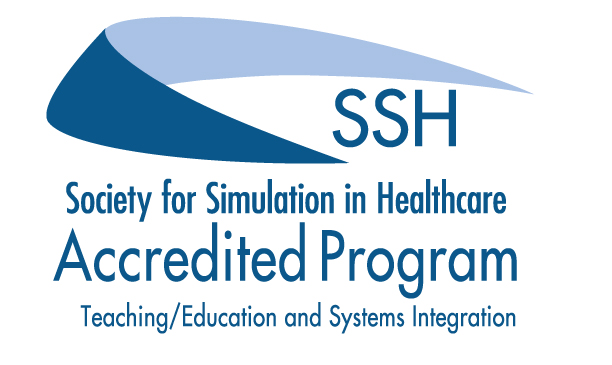
The Children’s Minnesota Simulation Program is accredited by the Society for Simulation in Healthcare (SSH) in the areas of teaching/education and systems integration. The accreditation is valid through 2030.
Teaching/education: the program demonstrates regular, recurring simulation educational activities with clearly stated objectives and qualified educators and provides evidence of ongoing improvement of these activities.
System integration: the program demonstrates regular and recurring, intentional, bi-directional interaction with clinical partner(s) and expertise in the development, implementation, and validation of system improvement activities.
Simulation Program
Children’s Minnesota simulation program's mission is to make health care safer for children by advancing patient safety within our own walls and delivering pediatric training to other health care teams within the region.
Our vision is to be this region’s pediatric simulation resource and contribute to Children’s Minnesota reputation as a high reliability organization by:
- Offering training to health care organizations and health care professionals seeking to improve their response to pediatric emergencies and those seeking to develop as simulation based facilitators.
- Using the most advanced training technology and team science to advance patient safety efforts.
- Supporting health care research utilizing simulation.
Location and contact us
To schedule a simulation course or tour one of our locations:
Call us: 612-813-6988
Email us
Children's Simulation Center Edina
Children's Business Campus
5901 Lincoln Drive
Edina, MN 55436
Children's Simulation Center Minneapolis
Michael and Judith Wright Family Pediatric Simulation Center
2525 Chicago Ave
Minneapolis, MN 55404
Children's Simulation Center St. Paul
Suite 3200
345 Smith Ave N
St. Paul, MN 55102
What is simulation?
What is simulation?
Health care simulation is a technique to replace and amplify real experiences with guided ones to evoke a “real-to-life” experience without any risk to patients and their families. Simulation-based training creates structured activities that represent actual or potential situations in practice. Simulation education specialists partner with clinical experts and educators to create flexible curriculum offerings to meet a variety of needs from procedural skill training to complex team simulations. Pediatric and neonatal scenarios are brought to life by our simulation operations specialists, reproducing a clinical environment that provides some of the same physical challenges and mental stressors one would have in a real event. The simulation training experience includes:
- Introduction to simulation and equipment
- Simulation exercises using task trainers, low or high-fidelity mannequins or patient actors that replicate real scenarios and real-time responses
- Debriefing with or without video review of simulation
Our programs enhance knowledge, critical care skills, clinical decision-making, communication and teamwork — all in a supportive, risk-free environment. Simulations cover everything from pediatric and neonatal stabilization algorithms and procedures to teamwork and communication training. In addition we can use actors as parents to simulate the challenges of breaking unexpected news and comforting distraught parents. Simulations prepare novice nurses and resident doctors for practice and provide practicing experts with high-risk patient care challenges to hone their teamwork and communication skills.
What to expect
Simulation can be a transformative experience for practicing health care professionals. Working in a simulated environment allows teams the ability to make mistakes without fear of patient harm and to gain powerful insight into potential areas for improvement. Simulation helps professionals gain confidence in leadership skills and ability to work as part of a team caring for critically ill children. Best of all, participants of all levels leave with a wealth of new skills to enhance their practice.
We believe that everyone who participates in simulation is well trained, cares about doing their best, and wants to improve. This basic assumption provides a rich experience that includes direct feedback and respectful dialogue.
Types of simulation experiences
Children’s Minnesota offers a variety of simulation experiences to meet your team’s needs:
In-situ simulation - Our staff travels into clinical areas to provide teams with risk-free training in their own environments. Simulation allows teams to test new equipment, practice protocols, uncover latent safety errors and give new facilities a “trial run” before opening — all with zero risk to patients.
Lab-based simulation - Children’s training center at the Edina business campus has 3 simulation labs providing an ideal setting for longer and larger trainings. Children’s Minneapolis on-site simulation center provides an exact replica of a critical care room and the St. Paul simulation center also provides an on-site option for providers on that campus. All sites offer state-of-the-art video recording, debriefing space, and adjacent classrooms or conference areas.
Mobile simulation - Our 40-foot, fully equipped mobile simulation center can replicate an emergency room, delivery room or other acute care setting and brings our most popular programs to teams across the Upper Midwest. Use these specifications to prepare your facility for a visit from our mobile simulation center.
Simulation course and service options
Pediatric Resuscitation and Trauma Team Training
This course puts PALS, ATLS, TNCC and Crisis Resource Management (CRM) into practice. It creates realistic and dynamic pediatric emergency situations that require health care personnel to apply their knowledge, including resuscitation and trauma care science, and their technical and clinical decision-making skills in their response as a team.
Objectives:
- Recognize the unique health care needs and challenges of caring for pediatric patients and their families.
- Work together with colleagues to improve team response.
- Identify cognitive, technical, and behavioral skills necessary to execute appropriate responses to critical medical events.
- Practice these skills in a realistic simulated environment that simulates the dynamic nature of the clinical setting in which each team practices.
Neonatal Resuscitation and Stabilization of the Critically Ill Neonate
Putting NRP and the S.T.A.B.L.E. program into practice, this course creates realistic, dynamic, neonatal emergency situations that require health care personnel to apply their knowledge of NRP and S.T.A.B.L.E. guidelines, while utilizing technical and clinical decision-making skills in their response as a team. This course is offered as a half day or full day program.
Objectives:
- Recognize the unique health care needs and challenges of caring for neonatal patients and their families.
- Work together with colleagues to improve team response.
- Identify cognitive, technical, and behavioral skills necessary to execute appropriate responses to critical medical events.
- Practice these skills in a realistic simulated environment that simulates the dynamic nature of the clinical setting in which each team practices.
Customized simulation services
We offer unique simulation services customized to meet the needs of your organization. Other simulation services may include but are not limited to:
- Competency-based clinical skill training and evaluation
- Institutional policy implementation
- Test of new spaces, processes and equipment
- Debriefing training
Meet the team
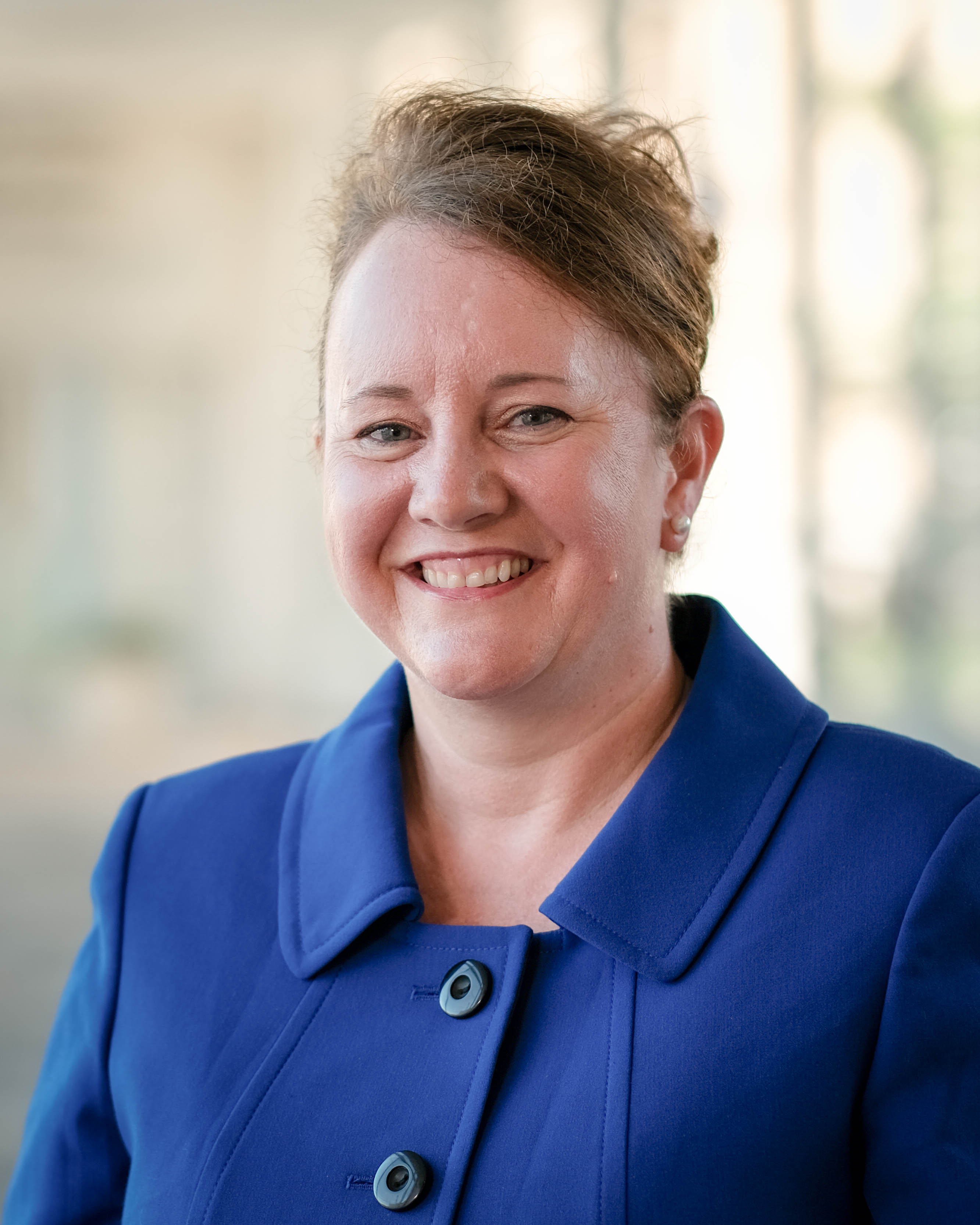 | Tonya Montesinos, MS, BSN, NE-BC, NPD-BC, PHN, CPPMSenior Director of Clinical Practice Tonya is responsible for the development, implementation, and evaluation of systems, structures, policies and processes that promote evidence-based practice to enable the advancement and delivery of high value care. She collaborates with clinical leaders to develop interdisciplinary models for evidence-based practice, clinical training, simulation and professional development. Tonya has her Bachelor of Science in Nursing and Master of Science in Educational Leadership both from Minnesota State University, Mankato. Tonya has over twenty years of leadership experience in various roles, most recently from Abbott Northwestern Hospital where she served as the Director of Nursing Professional Practice and Magnet coordinator. She successfully coordinated the achievement of three Magnet designations by creating systems and structures that promote the achievement of nursing excellence. She was also responsible for improving nursing practice, designing structures and communication for nursing governance and facilitating collaboration between various departments and roles. Tonya and her husband have two daughters and a rescue dog, Kinley. Her family loves to travel, volunteer, garden, play games, read and spend time together outdoors. They are a foster dog family and enjoy seeing all of the puppies go to their forever homes |
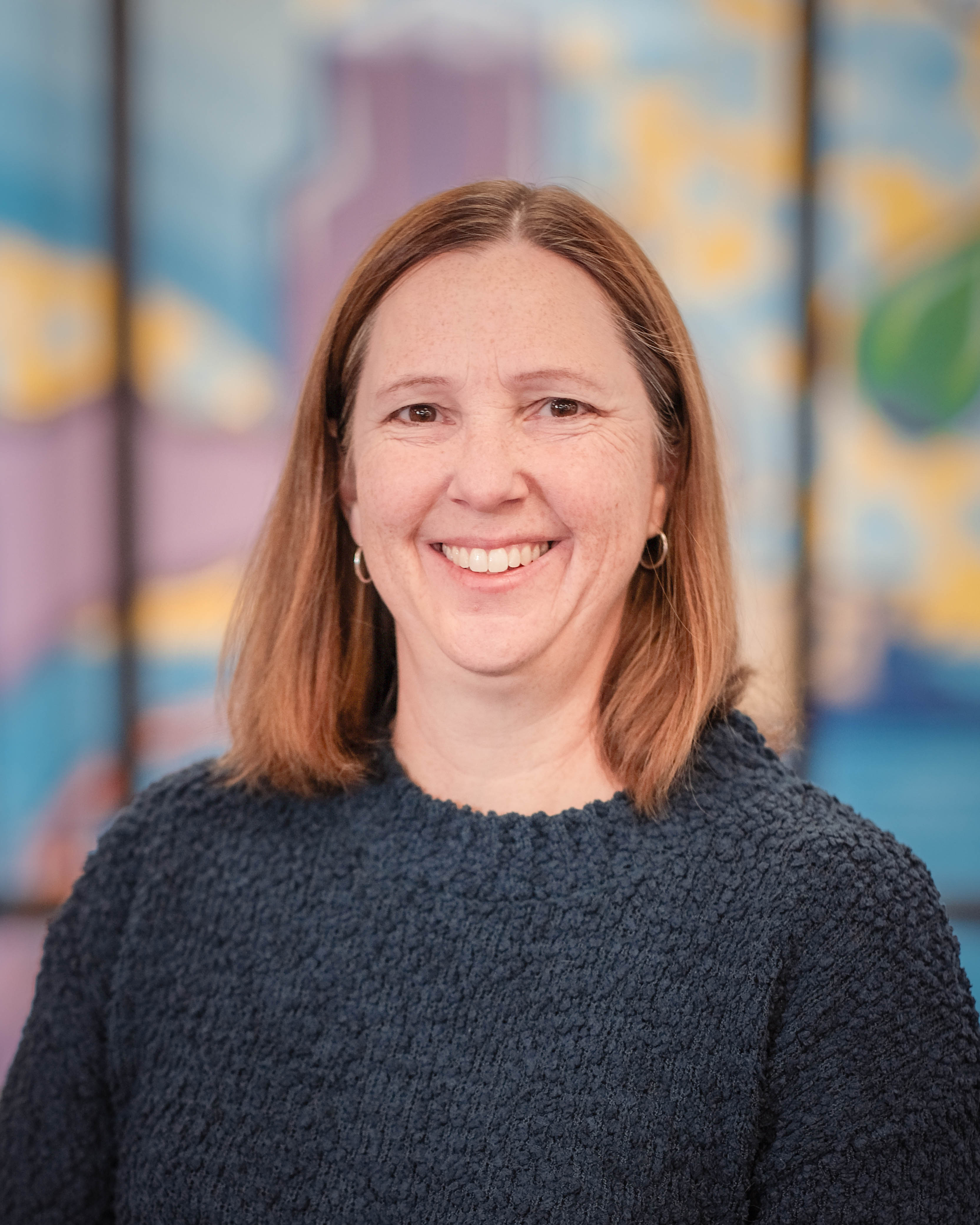 | Jill Johnson, MSN, RN, CHSE - Simulation Education Specialist Jill has been a Registered Nurse since 2007. She earned her BSN from Creighton University and her MSN from St. Catherine University. During her career, she has worked in both clinical and educational settings. She spent the first ten years of her career in the clinical setting, working as a staff nurse, charge nurse, and nurse supervisor on a variety of units in both urban and rural hospitals. In 2018, Jill entered the world of higher education where she taught for five years as a nursing professor. It was during that time that Jill became active in healthcare simulation and completed her CHSE (Certified Healthcare Simulation Educator) certification. She is passionate about curriculum development, best practice implementation of simulation, and providing meaningful learning experiences for current and future health care providers. When she is not working, Jill enjoys being out in the Minnesota elements year-round… on foot, bike, skis, or boat. |
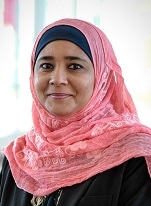 | Samrina Naqvi, MD, (MBBS), MHA – Simulation Education Specialist Samrina is an ECFMG Certified MD with experience in Family Practice and Pediatrics. She is currently a student of the Executive Masters of Healthcare Administration Program at the University of Minnesota and will be graduating in December of 2019. She is ACLS and BLS certified. During her graduate studies, she developed a special interest in Medical Simulation and Patient Quality and Safety which led her to pursue a career in Healthcare Simulation. She is also leading a project in Healthcare Innovation and Transitioning to Value-based care. Samrina is committed to ongoing excellence in medical education and brings experience from her practice in both rural and urban environments. |
 | Aaron Simpson, K., NREMT-E. CHSOS – Simulation Operations Manager Aaron received his National Registry Emergency Medical Technician certification from the Academy of Health Sciences in San Antonio TX in 1990. Aaron is also currently serving as a reserve Soldier in the Minnesota Army National Guard as a Medical Platoon Sergeant. He has had various positions in Emergency Medicine since 1991 and has worked as a military medical instructor for the Department of Defense teaching EMS courses and advanced medical skills for Military providers. Aaron has been working in medical simulation since 2012 and is a certified BLS, ACLS, and PHTLS instructor as well as a PALS provider. |
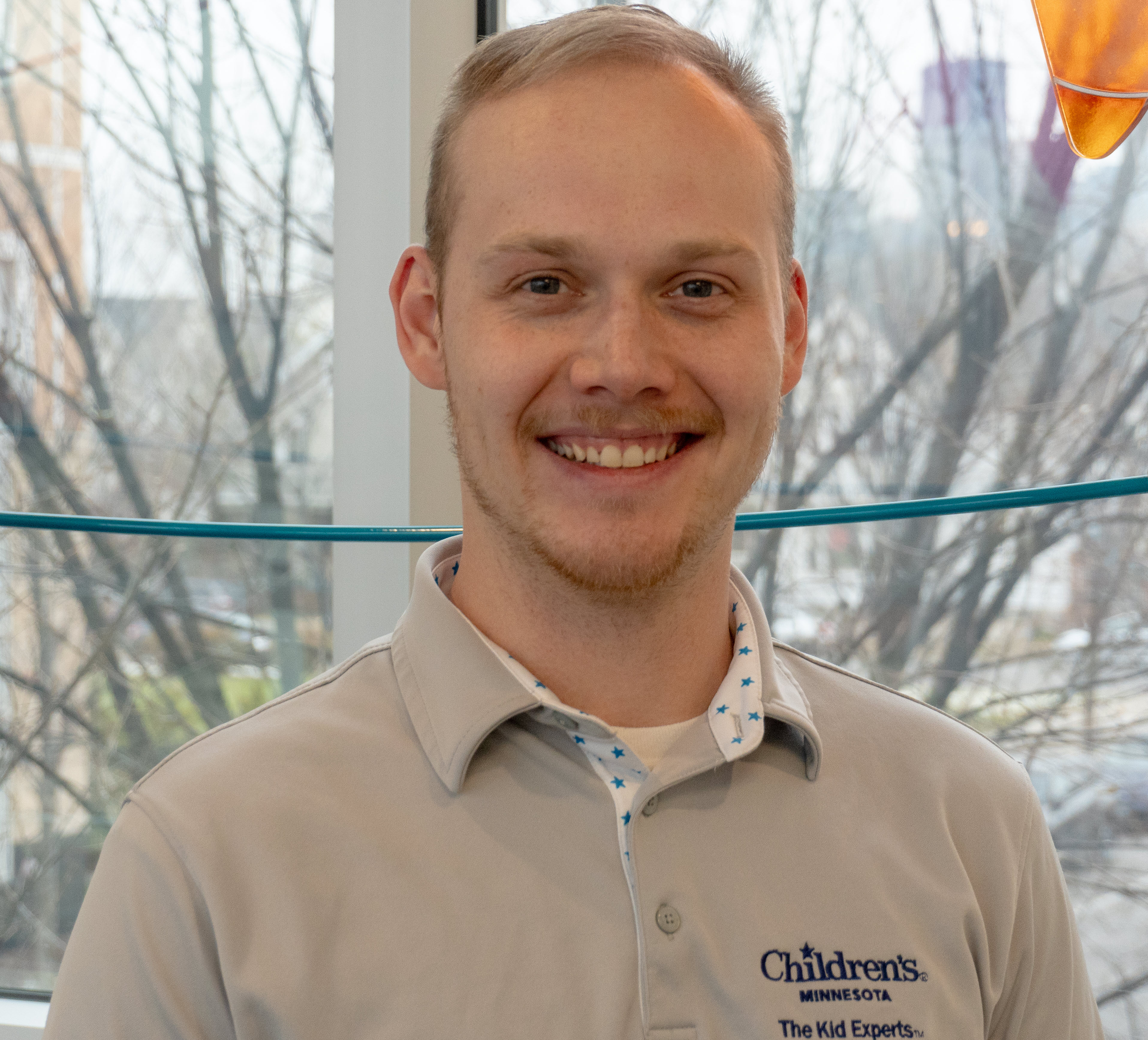 | Ryan Anderson - Simulation Operations Specialist Ryan received his National Registry Emergency Medical Technician certification in San Antonio Texas in 2013. He graduated from the University of St. Thomas in 2018 with a BS in Biology. Ryan currently serves in the Minnesota Army National Guard as a Medical Squad Leader. He previously worked in the lab at Children’s Minnesota as a phlebotomist. Ryan has been working in medical simulation since 2023 and is certified in BLS and ACLS. |
 | Nick Kowalski, BA, CNA – Simulation Operations Specialist Nick is a Casual Simulation Operations Specialist who joined the team in June of 2025. He completed his BA in 2018, and is currently aiming at Physician Assistant school. Nick also has held roles within the US Army planning and executing operational training, tactical medical training. He also comes to the team with experience in direct patient care and assessment (CNA). In his role with Children’s Nick is quickly building experience in manikin use and maintenance, and educational modalities of simulated patient care and training. With a passion for helping people learn and improve their skills he is continuing to look for ways to increase his depth of knowledge and technical expertise within Simulation. In Nick’s free time he enjoys weightlifting, guitar, reading, language learning, combat sports and tabletop games. |
 | Luke Mitchell, BS, CHSOS – Simulation Operations Specialist Luke is one of our Simulation Operations Specialist who joined the team in July 2024. Prior to joining Children’s, Luke worked as the Senior Simulation Operations Specialist at Noorda College of Medicine since March 2022. While at Noorda he assisted in the creation of their state-of-the-art simulation center. In early 2024 passed the CHSOS exam to become a Certified Health Simulation Operations Specialist. Additionally, his background includes working as the Quality Assurance Lead at Brigham Young University and COVID-19 Data Analytics Integration Lead. Luke’s experience in simulation programming and application development has been a great asset to the Simulation Team. In his free time Luke enjoys being outdoors, especially hiking, water sports and fishing. |
Taha Syed, BA, BSE – Simulation Operations Specialist Taha is a Casual Simulation Operations Specialist who joined the team in May of 2025. He graduated from the University of Minnesota in June 2025 with a BA in Biology. Taha helps design, implement, and maintain realistic simulation scenarios ensuring their functionality for training and operational needs. He continuously analyzes simulation performance, troubleshoot issues, and monitors current operating systems to optimize their effectiveness in simulation. Taha has been working in healthcare spaces such as Pharmacy since 2022 and is certified in BLS. | |
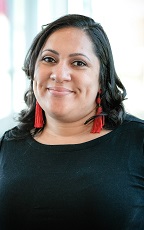 | Crystal Walker – Administrative Assistant Crystal Walker is the Administrative Assistant for the Simulation Center. She brings over 18 years of administrative experience supporting executive level leaders, departments and staff. Crystal’s expertise includes her advanced knowledge of the many programs in Microsoft Office, her ability to manage and prioritize multiple projects, tasks and her strong analytical and reporting skills making her an invaluable asset to the Simulation team. Behind the scenes Crystal helps the Simulation Center staff with scheduling, meeting planning, and many of our other day to day needs giving us the opportunity to focus on delivering the best Simulation experience for our learners. |

 Facebook
Facebook X
X LinkedIn
LinkedIn Forward
Forward